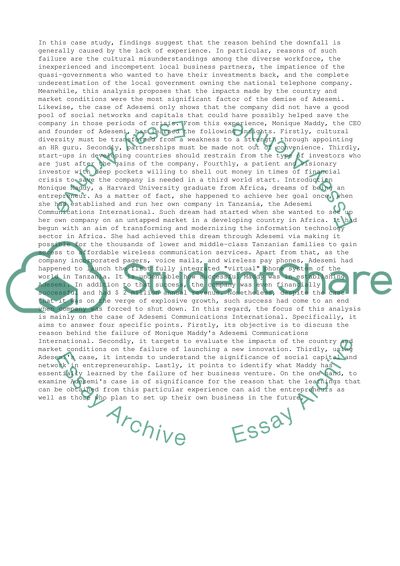Cite this document
(“Case Study of Adesemi Communications International”, n.d.)
Case Study of Adesemi Communications International. Retrieved from https://studentshare.org/business/1399965-case-study-of-adesemi-communications-international
Case Study of Adesemi Communications International. Retrieved from https://studentshare.org/business/1399965-case-study-of-adesemi-communications-international
(Case Study of Adesemi Communications International)
Case Study of Adesemi Communications International. https://studentshare.org/business/1399965-case-study-of-adesemi-communications-international.
Case Study of Adesemi Communications International. https://studentshare.org/business/1399965-case-study-of-adesemi-communications-international.
“Case Study of Adesemi Communications International”, n.d. https://studentshare.org/business/1399965-case-study-of-adesemi-communications-international.


